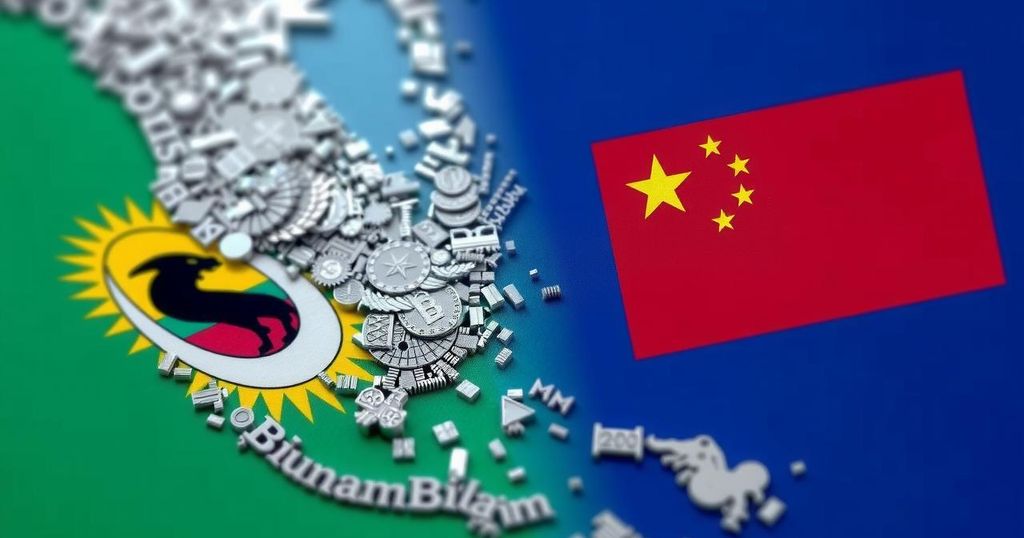Business
economics
ASIA, BUDGET, CHAN SANTOKHI, CHANDRIKAPERSAD, CHANDRIKAPERSAD CHAN SANTOKHI, CHINA, ECONOMY, EXIM BANK, GOVERNANCE, GOVERNMENT POLICY, ICBC, INDUSTRIAL AND COMMERCIAL BANK OF CHINA, INFRASTRUCTURE DEVELOPMENT, MEXICO, NATIONAL ASSEMBLY, NORTH AMERICA, OR, PEOPLE ’ S REPUBLIC OF CHINA, SANTOKHI, SOUTH AMERICA, SURINAME, XI JINPING
Marcus Li
0 Comments
Suriname Finalizes Debt Rescheduling with China Amid Economic Challenges
Suriname has signed a debt rescheduling agreement with China, enabling repayment to begin this year. The Finance Minister announced the deal, which restructures debts totaling approximately US$476 million, primarily owed to the Exim Bank and ICBC. This agreement follows President Chan Santokhi’s visit to China and marks a key step in Suriname’s financial strategy.
The Government of Suriname has officially entered into an agreement with China to reschedule its debt, with the initial repayments to creditors set to commence within the year. Suriname’s Finance and Planning Minister, Stanley Raghoebarsing, disclosed this development to the National Assembly, noting that the agreement followed a prolonged four-year negotiation process. Suriname’s current debt to China, particularly to the Exim Bank, stands at approximately US$476 million, with US$140 million currently in arrears. The repayment plan involves two phases for Exim, while the total debt owed to the Industrial and Commercial Bank of China (ICBC) will be settled in a single payment of US$68 million. Minister Raghoebarsing emphasized that the rescheduling could not have been achieved without President Chandrikapersad Chan Santokhi’s recent visit to China, where significant agreements were reached, although final settlement processes had taken longer than anticipated.
This article highlights the financial negotiations between Suriname and China regarding the restructuring of Suriname’s debts. Given the economic challenges faced by Suriname, particularly with a notable portion of its debts being overdue, the agreement represents a crucial step towards financial stabilization. Traditionally, bilateral debt negotiations can extend over several years before any concrete arrangement is established. In this case, the engagement of high-level political leadership, specifically that of President Santokhi, was pivotal to advancing the discussions with Chinese officials.
In summary, Suriname’s new debt rescheduling agreement with China is a critical measure for the country’s financial management, allowing it to address immediate repayment challenges. The successful negotiations, underscored by Minister Raghoebarsing’s remarks, exemplify the importance of diplomatic engagements in resolving economic issues. The planned structured repayment strategy reflects a methodical approach to managing international debt while aiming for economic recovery and stability for Suriname.
Original Source: caribbean.loopnews.com




Post Comment